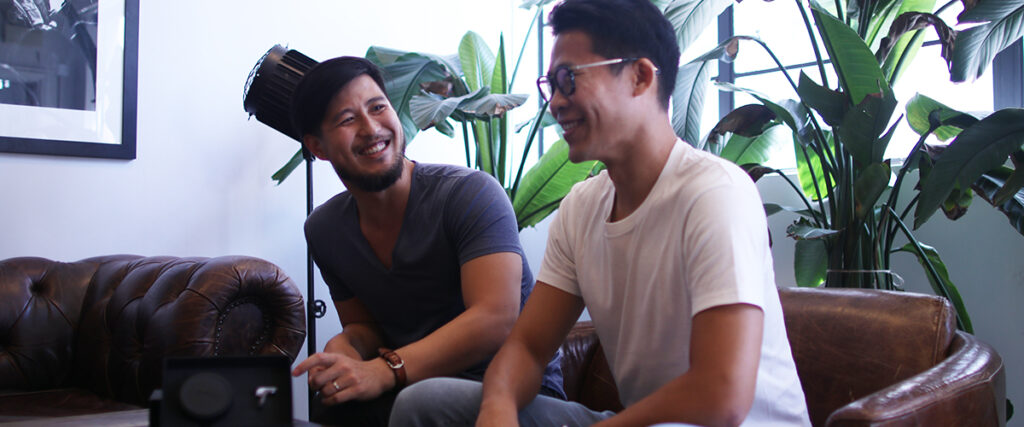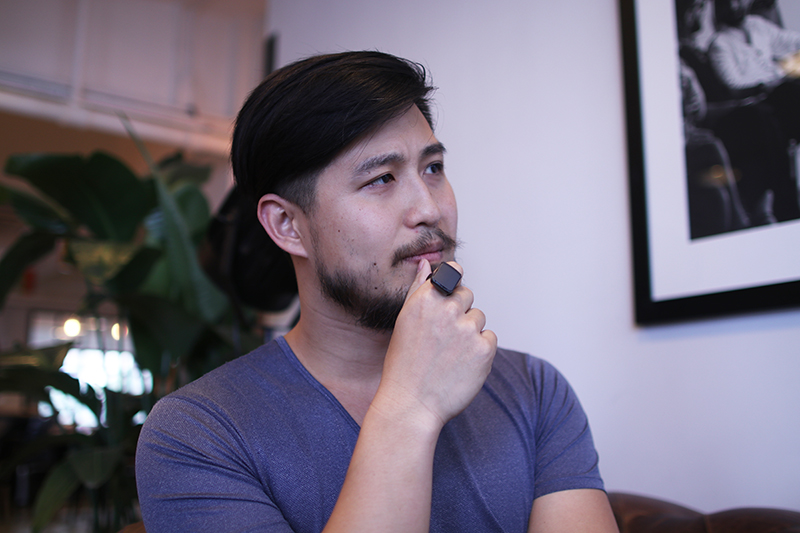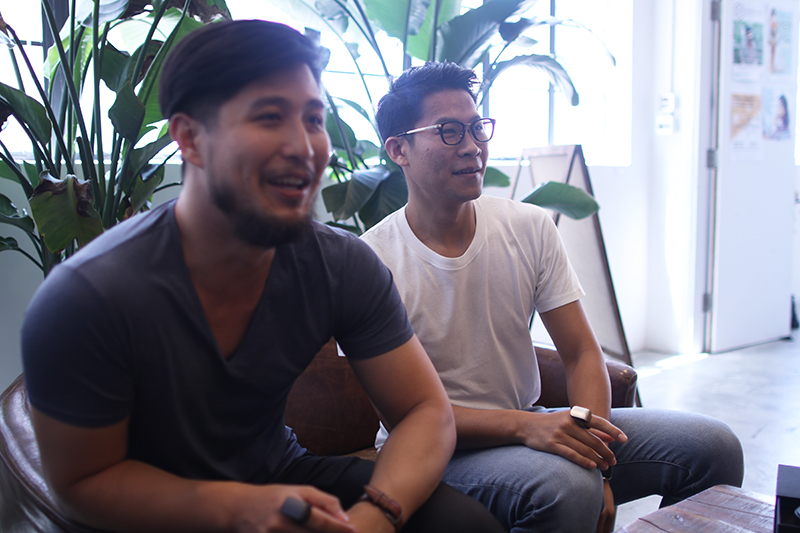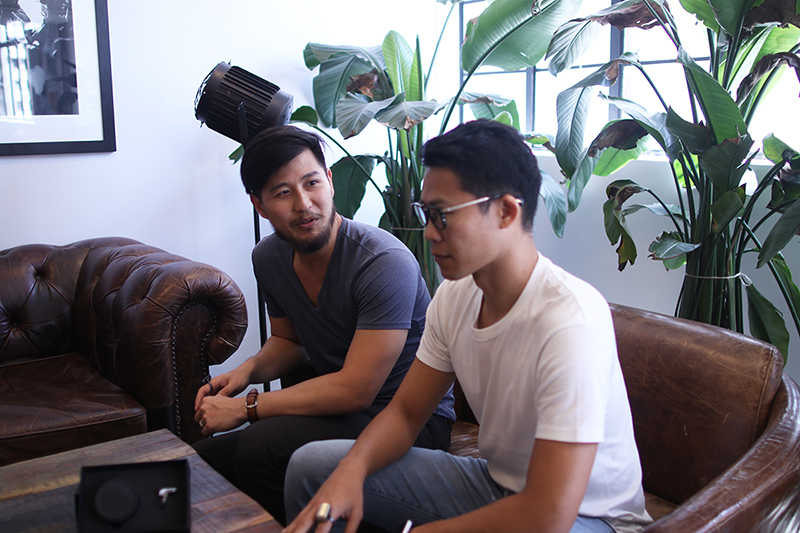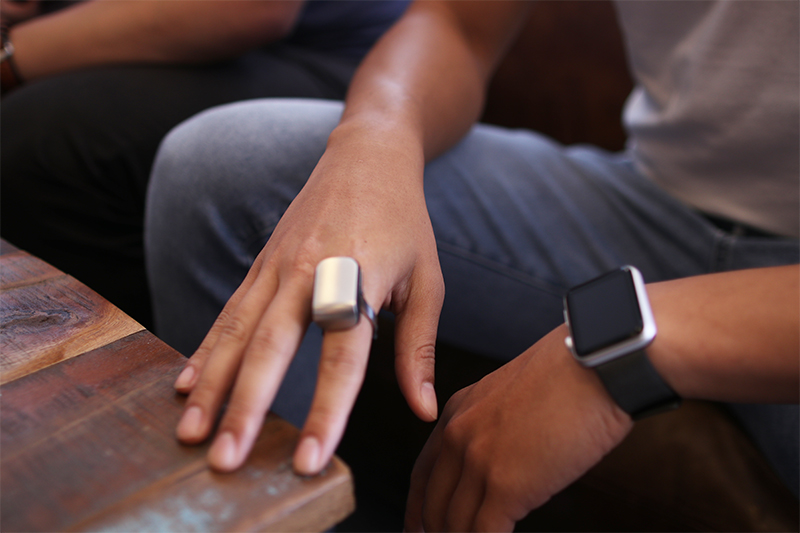We sit down with Kevin Wong and Emile Chan of Origami Labs to discuss the initial stages of ORII and how Kevin’s visually impaired father impacted his decisions.
Amidst the dynamic world of technology, Kevin Wong is making a name with ORII at Origami Labs, the world’s first voice-powered smart ring inspired by the visually impaired. Since 2017, Kevin and his team of 12 have surpassed its original crowdfunding goal of $30,000 with a total of $333,907. On a sunny Thursday morning in Hong Kong, we had a chance to sit down with CEO Kevin Wong and CMO Emile Chan to get a first-hand insight on ORII amongst other things.
Despite knowing little about technology initially, Kevin began to flounder himself with research by taking apart electrical components and combining them to understand the process. Soon after, Kevin and the team focused their attention towards bone conduction which eventually led to the development of ORII, the world’s first voice-powered smart ring. However, this was not always easy – “At the start, we built the rings by hand to try and understand the limitations of the technology. It was endless nights of ripping things apart,” explains Kevin.
Rumours of ORII being a fake project began to trend on Reddit soon after, and as of this Kevin was determined to press on through the negativity and focus on his goals. With aspirations to help the visually impaired to access smartphones screen-free, the team at Origami Labs developed 19 prototypes to build towards that vision. Amongst ORII, we explore Kevin’s childhood along with the respect and admiration he has towards his father who sparked the ingenuity for Origami Labs since day one.
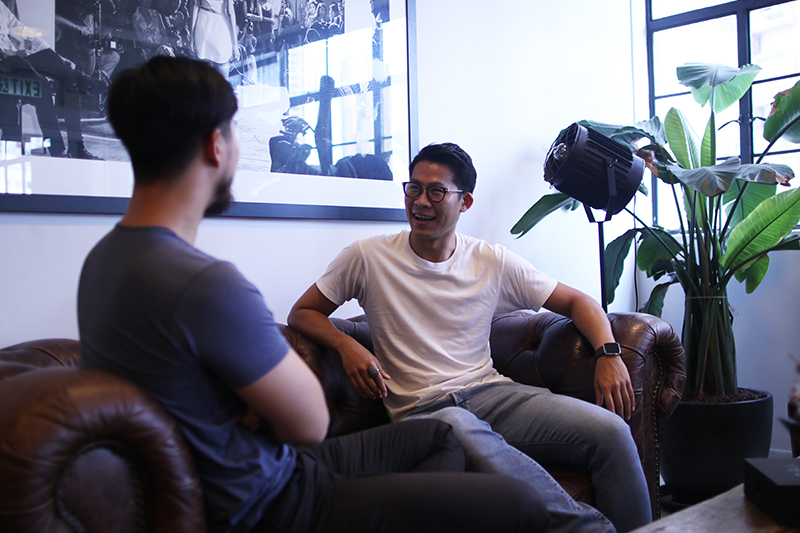
Congratulations on coming such a long way since 2015. How have you managed to keep yourself and the team motivated overtime?
We always go back to the end goal. For the entire team, we have very clear milestones in which we are trying to achieve. Everyone is goal orientated so that we’re able to turn negativity into positivity. It’s a very powerful mentality. The most important thing is to understand you are allowed to make mistakes but don’t repeat them – learn from every experience.
Also, the project is more than just about making money – there has always been an ulterior motive outside of that. We are trying to impact the world by creating something new. With startups, there will be tough moments, but don’t forget to go back to the core reason and why you’re at it- that works for me.
We know ORII was inspired by your father’s visual impairment, but why a ring?
My father influenced our vision of screen-free technology, moving away from touch-based devices. We tried every type of hardware, from necklaces to shoulder pillows to mouth guard but the ring balances a lot of different things. Also, the ring seemed more convenient because you’re able to wear from day to night as opposed to a headset where it’s an on/off type of product.
Speaking of your father, how much contribution has he had with ORII?
He is a technologist with the design mentality, so he has worked on several products before. We always give him some ideas of what we’re doing. Early on, he was one of the first testers for the product which helped us to understand the meaning behind screen-free. He has made a lot of subtle decisions about the user interface, specifically the design choices but now he plays the role as a technical adviser.
Mentors like him with a lot of experience are always helpful when it comes to startups. There’s only so much you and your core team can do. If you have someone of that caliber willing to help, then all the better.
Did you ever imagine that the ORII Team would expand from 2 to 12 excluding volunteers?
We started off with 2 guys, me and Marcus, and then 4 with Emile and Yan. Everyone was involved at some point, but it was a slow transition into a full-time role. We’ve only been going on for a year and a half but everyone has been helping from day one.
Building a team has always been a part of the vision for the company. We’ve been lucky that we’ve been able to assemble the team of 12.
Were you expecting to win so many competitions and awards with ORII?
Not really – I don’t really like competitions, but if we’re competing for something then we put our best foot forward. It’s not about winning per se; it all comes down to meeting the right people, expanding our horizons by finding a business partner or even finding an investment.
The prize money did help us but competitions are a dangerous thing because you don’t want to be a startup that just competes. For a lot of startups, it’s a trap – the competitions are quick money, you win prizes and what not. I would rather sell 100,000 units than win a competition; that’s the core. It’s about doing the groundwork, executing, working on the product and finding good business partners.
Bone conduction is mainly used by the hearing impaired. Do you think you have made it a trend within the tech world?
Bone conduction technology has been around for a while, and the way we are applying this technology is customised for our specific usage. We have spent a lot of time trying to optimize and balance this power – the fidelity, and reducing the sound leakage to a minimal amount.
We have done a lot of things to make bone conduction accessible from decreasing sound leakage to downsizing the product. More than anything we hope that it has become a trend, but we won’t know until someone else makes a smart ring like ours. I’m hoping someone attempts to create a voice-powered smart ring like ORII. We would be less of a niche product.
What were the initial stages of design and production like?
There were so many dead-ends at the beginning but every single one of those moments was a learning experience. During the design stage, we were trying to figure out how the vibrations were transferred. At one point, we built several rings by hand just to try and understand the limitations of the technology. It was endless nights of ripping things apart and then eventually we designed the prototype. From then on, ORII became clearer.
After 19 prototypes, are there any aspects to ORII that you wanted to include but could not achieve? Was there a moment you wanted to give up?
The key thing to the hardware business is that you need to make sure you define your MVP (minimum value product). You need to create a product that’s achievable. We’re not at Apple, we’re not at Google, and we don’t have endless resources to be able to conduct research. There are many things that are technically feasible but whether or not you want to put them into your product is another thing.
How dependent would you say ORII is on Siri or any other virtual assistant?
I’d say it’s 50/50. Things like reading WhatsApp notifications are from our software, but the text speech engine relies on the voice assistant. Other than that, the entire UX system has to be written by us – which is not a very common feature in most apps. The goal is to make the user experience seamless so the product is one cohesive element – it should feel like you’re using one product the entire time.
Will ORII always be accessible to the visually impaired or do you plan to take it even further to reach the masses?
That’s a good question. The connotation of the word accessibility is that you’re building a product for a specific group of people, but you’re also making the product easier to use for a particular group of people. A good feature of a product is that it should be accessible to everyone and by designing for a specific group of people, you make things easier for everyone.
What has been the biggest influence in your life so far apart from your father?
Life is complicated. There are many different things, but there are two moments that stand out. When I was younger, I did eco scouts which involved doing wilderness survival with limited resources. It helped build some mental fortitude.
Coming back to Hong Kong 6 years ago was life-changing as well. I haven’t spent much time in Hong Kong but I am figuring out how to make the environment my own, and I am meeting new groups of people.
What’s your personal vision for ORII?
We believe that technology is moving away from screens. For example, both the iPhone 8 and 10 are great products, beautiful pieces of hardware – the best iteration of what Apple has made so far. But people are not getting as excited about it as they used to be.
That’s why a lot of companies have been shifting to voice products like HomePod, Google Home, Echo. It seems that tech companies have realised that this is almost the end of the smartphone era. At Origami Labs, we want to help shape what Hong Kong’s rapidly changing tech scene.
If your father wasn’t visually impaired and the idea of ORII never came about, what do you think you would be doing?
I think it’s tough because growing up it was a difficult environment, but that caused me to be who I am today. When I was young I had to be relatively self-sufficient – my mother spent most of her time taking care of my father. He was always there from an emotional side.
I had to do a lot of things by myself, and I had to learn to take care of someone. I learned about responsibility at a young age – it was a significant opportunity for me. If it weren’t for the powerful circumstances which I was in, then I wouldn’t be where I am today.
What was your childhood like growing up with your father being visually impaired?
It was tough. I remember as a kid I complained about not enjoy being a kid. I spent my time with my father and I slept at his office a couple of days during the week. It was not easy, but it then fostered this innate desire to learn. It exposed me to that world and the curiosity never really stopped from there. My father is proud of what we have achieved and how ORII is not just a cool product. Like any father, I’m sure he worries about my health or how much I’m sleeping and whatnot.
Finally, what are your thoughts on Hong Kong’s entrepreneurial environment to other countries such as the States or Europe?
It’s fun but young, and this has its advantages and disadvantages. Practically speaking, regulations are less structured, and the startup ecosystem is slowly catching up. For us, there are not many hardware investors in Hong Kong, but that didn’t stop us. We still knocked on people’s doors, and we went to people that typically didn’t invest in hardware and told them our story.
Being an entrepreneur, it is in your interest to be a trailblazer, and here in Hong Kong, you have that opportunity. That is one of the most exciting things about this city – you have the chance to become a contributor to the ecosystem.
Details
www.kickstarter.com/projects/orii
Related Articles
Asia’s Trailblazer to Outer Space
